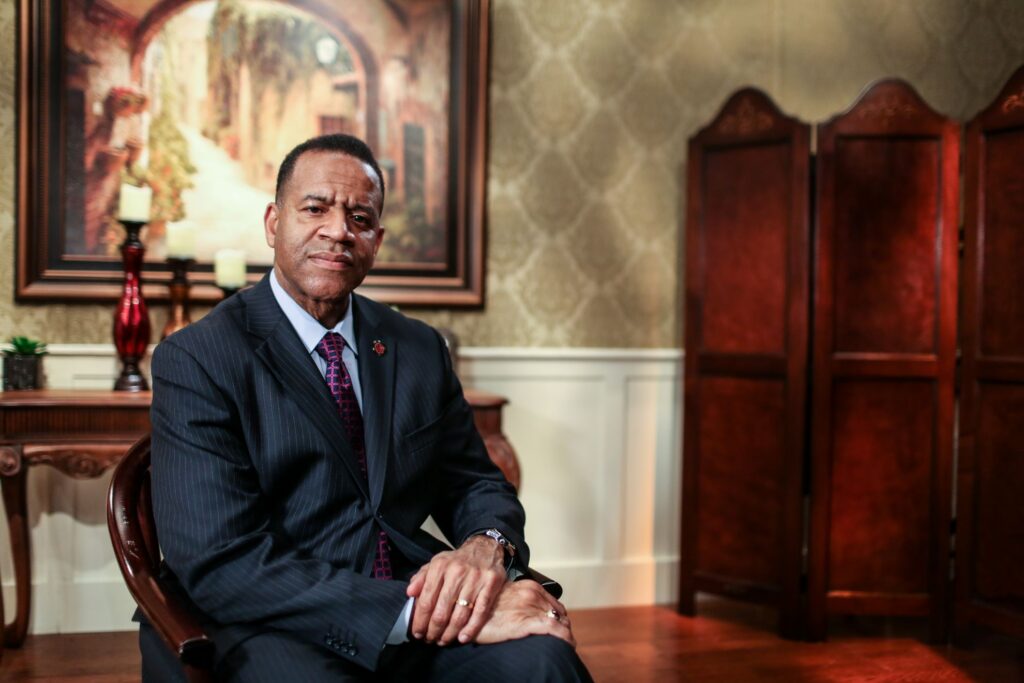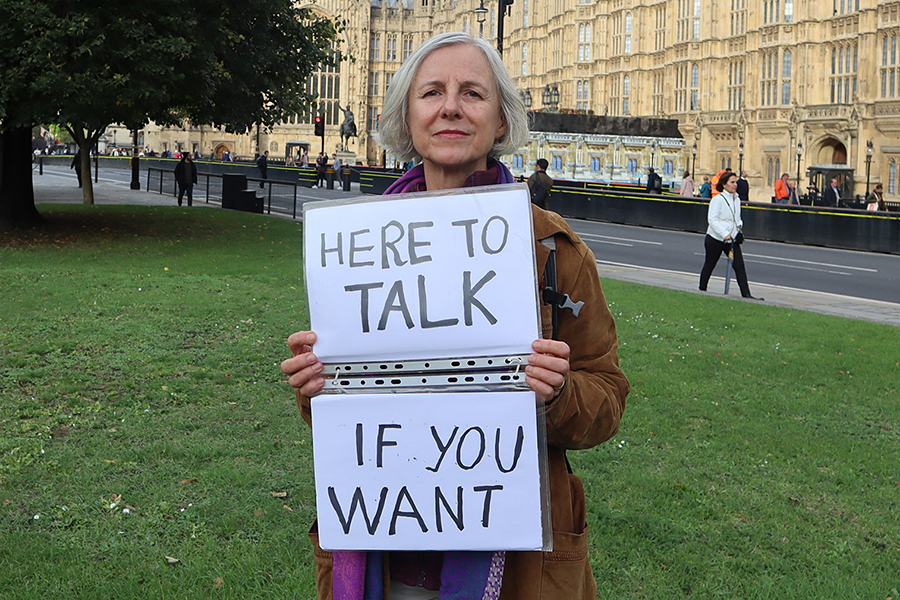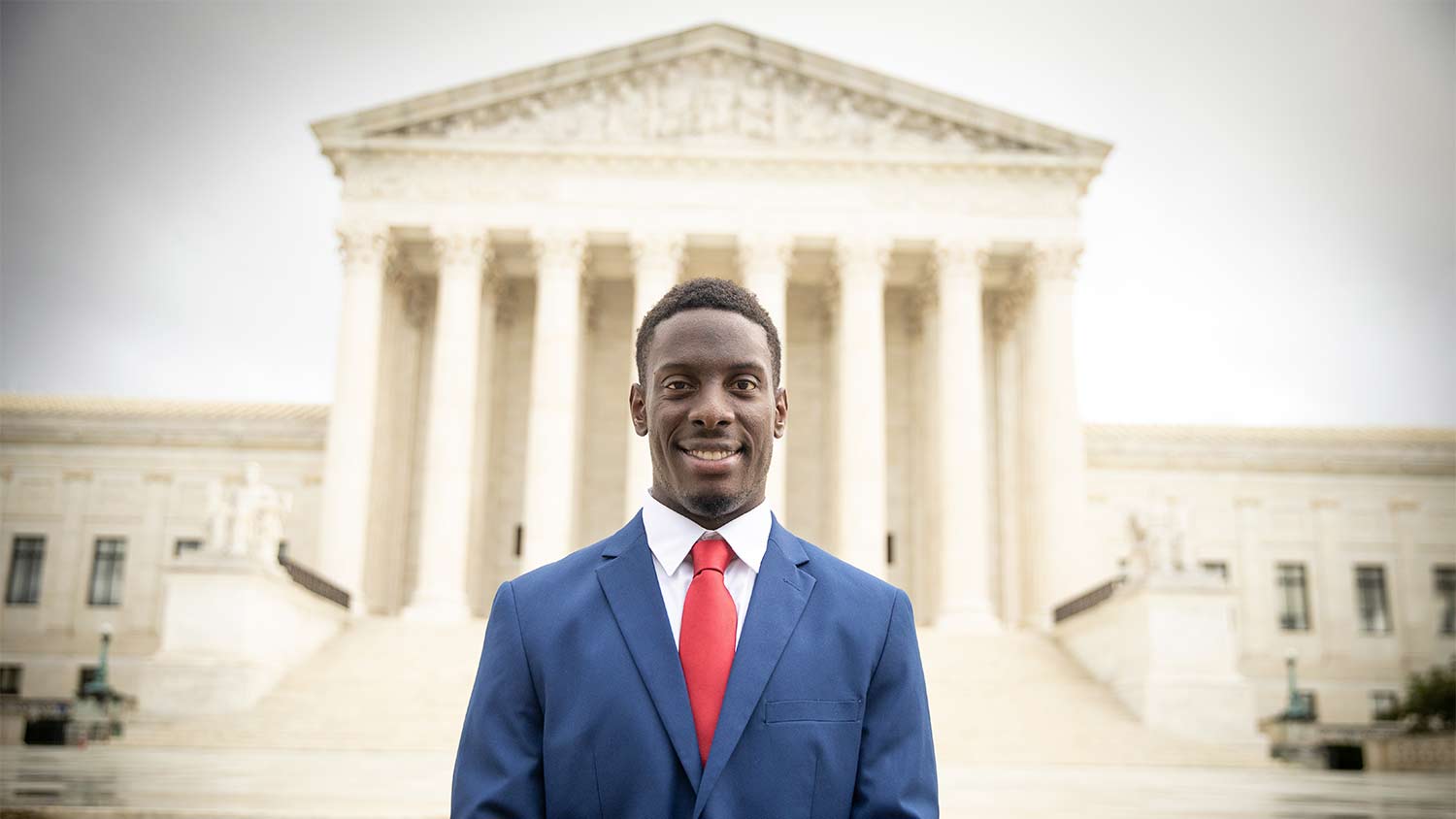
One of the most important commands that Jesus gives us in the Bible appears in Matthew 28:19-20. Jesus delivered the instructions, often referred to as The Great Commission, in Galilee to his disciples:
“Therefore go and make disciples of all nations, baptizing them in the name of the Father and of the Son and of the Holy Spirit, and teaching them to obey everything I have commanded you. And surely I am with you always, to the very end of the age.”
While Jesus said these words directly to his disciples, they are also a command for all Christians who would come after them. Chike Uzuegbunam (pronounced CHEE’-kay Oo-zah-BUN’-um) was answering this call when officials at Georgia Gwinnett College violated his First Amendment rights.
And even after Georgia Gwinnett College revised its policies, it tried to avoid accountability for trampling on Chike’s rights. Thankfully, Chike took his case all the way to the U.S. Supreme Court, where he emerged victorious.
Who is Chike Uzuegbunam?

Consistent with The Great Commission, Chike is passionate about sharing the Good News with those around him. So, after Chike started attending Georgia Gwinnett College, he saw it as his new mission field.
To Chike, this is the most loving thing that you can do for someone else—to share the Good News that Jesus Christ died for our sins and rose again so that we can have eternal life with Him.
“I want to get to know people,” Chike said. “I want to get to interact with them and get to know who they are. I want to love people with sharing the greatest news in the world.”
In 2016, Chike set out to do exactly that at Georgia Gwinnett College. He began handing out pamphlets in a plaza on campus and talking about the Gospel with interested students as they passed.
Chike’s free expression of ideas should have been encouraged, especially on a college campus supposedly dedicated to open dialogue. Unfortunately, the college saw things differently.
Officials shut down Chike’s speech
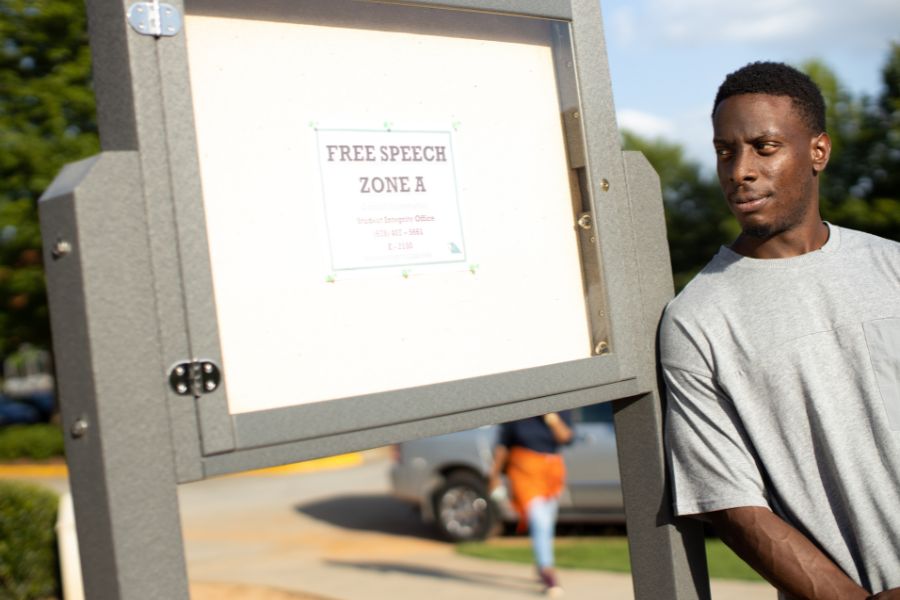
Not long after he began speaking about the Gospel, some college officials approached Chike. They informed him that he was not allowed to distribute materials or talk to other students about his beliefs unless he had reserved a time in a campus “speech zone.”
Georgia Gwinnett College had two speech zones, but don’t be fooled into thinking the college broadly encouraged free expression. These were the only designated places students could exercise their First Amendment rights. Combined, the two spaces made up about 0.0015 percent of campus. If the entire campus were the size of a football field, these “speech zones” would be the size of a piece of notebook paper.
On top of that, they were only open for student use for 10 percent of the week—just 18 hours on weekdays and closed on the weekends.
“I had to ask for permission to exercise my First Amendment rights,” Chike said. “That’s not freedom of speech. But nonetheless, I got the permission.
“I signed documents. I indicated what time and what place I was going to be there. I indicated the content of my message. I even submitted the literature that I was going to be handing out.”
But that still wasn’t enough for Georgia Gwinnett College.
Alliance Defending Freedom stepped in
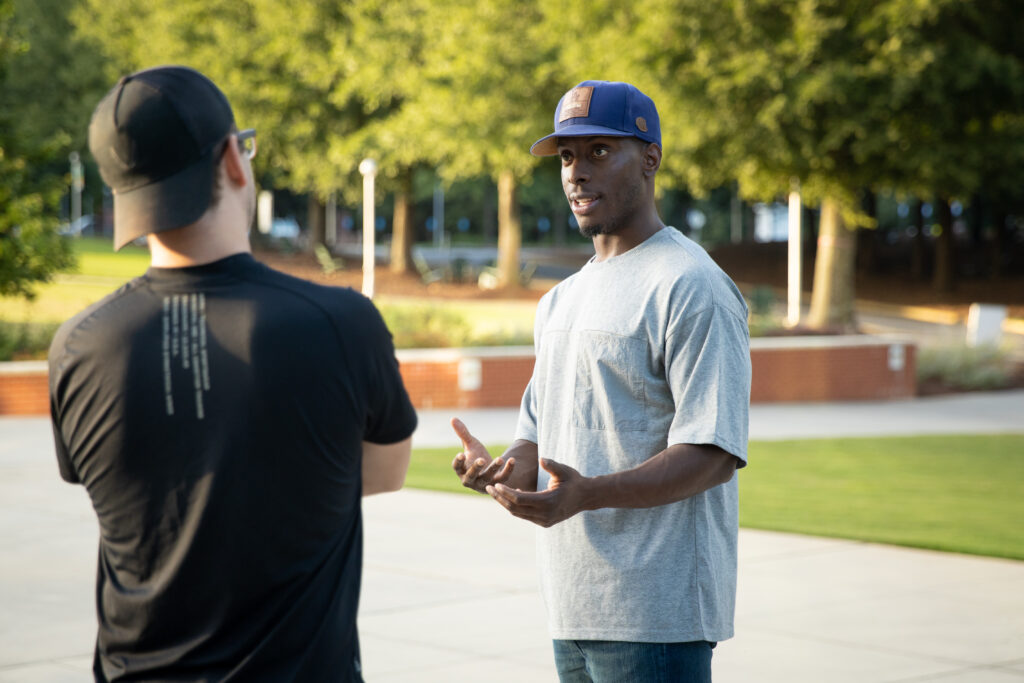
When Chike began sharing his faith in the speech zone during the time he had reserved, campus police approached him. The officers took his ID card and told him to stop speaking because someone had complained.
According to these officers, Chike violated the speech code in the Student Code of Conduct, which allowed the college to stop speech if someone complained. As a result of the college’s policies, Chike was not allowed to speak his message anywhere.
Under the First Amendment, colleges can’t restrict free speech to small areas of campus, nor can they silence specific points of view just because some people have complained about them. So, in December 2016, Alliance Defending Freedom filed a lawsuit on Chike’s behalf.
“The First Amendment guarantees every student’s freedom of speech and religion,” said ADF Senior Counsel Travis Barham. “Every public school—and especially a state college that is supposed to be the ‘marketplace of ideas’—has the duty to protect and promote those freedoms.”
Supreme Court delivered major victory for free speech
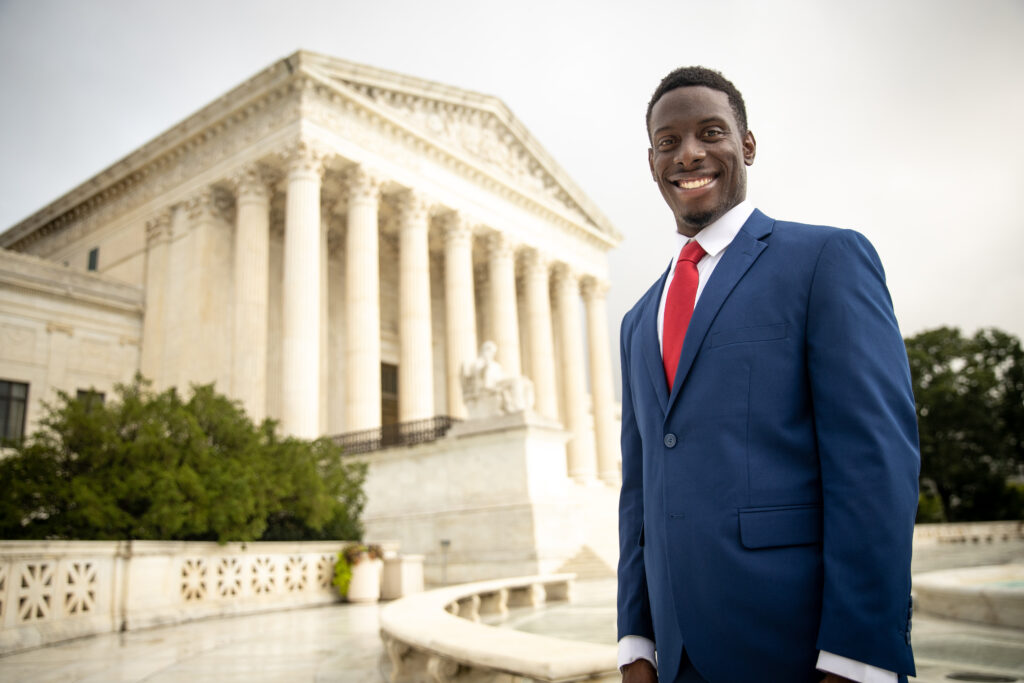
Georgia Gwinnett College initially argued that Chike should receive no constitutional protection for peacefully sharing his religious beliefs. Eventually, it abandoned this argument and amended its speech policies to allow for speech in any outdoor area of campus—consistent with the U.S. Constitution.
But then, the college argued that since it changed the policy, its officials should get a free pass for how they treated Chike.
Unfortunately, a federal district court dismissed Chike’s case. The court wrongly reasoned that since the policy had been changed and Chike had graduated, Georgia Gwinnett College officials didn’t need to be held accountable for violating Chike’s free speech.
After the U.S. Court of Appeals for the 11th Circuit affirmed the district court’s ruling, ADF attorneys appealed to the U.S. Supreme Court, which agreed to hear the case.
In March 2021, the Supreme Court ruled that the officials shouldn’t get a free pass for violating the First Amendment.
“When government officials engage in misconduct without consequences, it leaves victims without recourse, undermines the nation’s commitment to protecting constitutional rights, and emboldens the government to engage in future violations,” said ADF CEO, President, and Chief Counsel Kristen Waggoner. “We are pleased that the Supreme Court weighed in on the side of justice for those victims.”
Georgia Gwinnett finally agreed to settle the case and paid more than $800,000 in nominal damages and attorneys’ fees.
Protecting free speech on campus
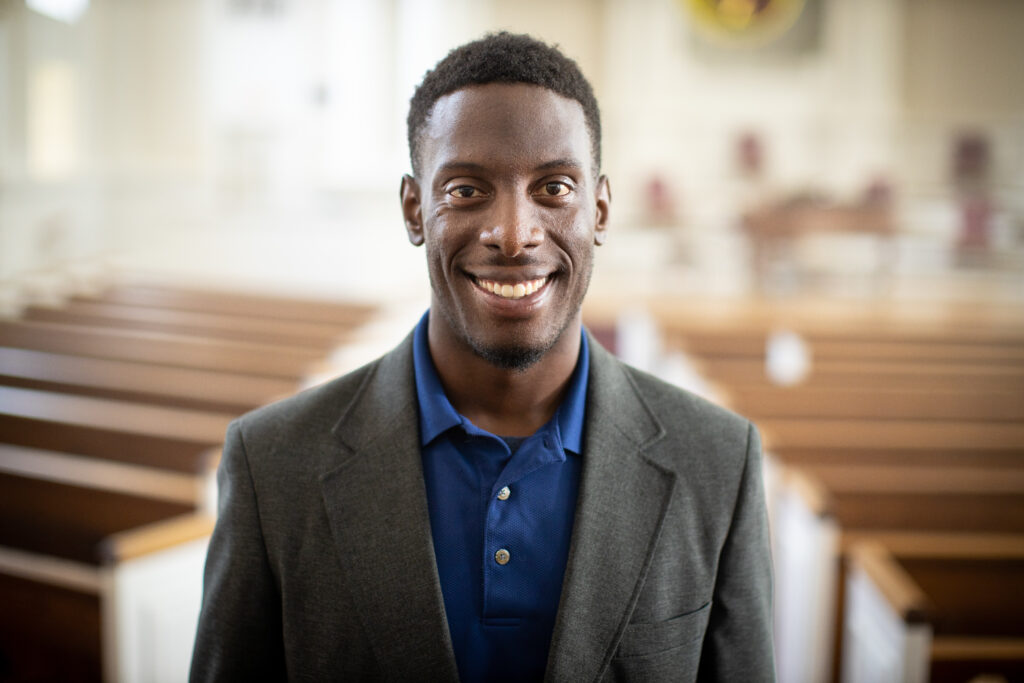
The Supreme Court made clear that our government officials have a duty to protect our rights, and when they violate them, there should be consequences.
The First Amendment guarantees a right to free speech, and college officials everywhere—including at Georgia Gwinnett College—should be in the business of upholding and cherishing that right.
When college officials violate students’ rights, they should face the consequences. And when courts don’t step in and hold government officials accountable for trampling someone’s constitutional rights, it enables and encourages the government to violate someone else’s rights in the future.
Thankfully, ADF’s Center for Academic Freedom has over 400 victories against public universities across the country, and we are continuing our efforts to defend free speech on campus. Will you donate today to protect the First Amendment?


